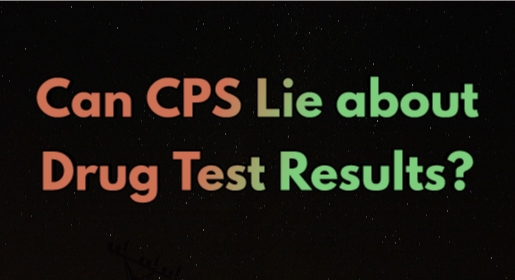Can CPS Lie About Drug Test Results: When it comes to Child Protective Services (CPS) and drug testing, there are often misconceptions and concerns about the accuracy and integrity of the process. One such concern is whether CPS has the power or motivation to lie about drug test results.
In this article, we aim to debunk these misconceptions and shed light on the facts surrounding CPS and drug testing. We will explore the protocols involved in drug testing, the role of CPS, legal safeguards, and the importance of transparency and accountability. By understanding the intricacies of drug testing within the CPS framework, we can dispel any doubts and ensure a fair and reliable system.
Table of Contents

Drug Testing Procedures
Drug testing procedures are designed to detect the presence of illicit substances in a person’s system. CPS may conduct drug tests as part of their investigations to determine the safety and well-being of a child. The most common methods used for drug testing include urine, blood, hair, and saliva tests. These tests are typically performed by trained professionals in accredited laboratories to ensure accurate results. Strict protocols are followed throughout the testing process to maintain integrity and reliability.
CPS Responsibilities and Objectives
The primary responsibility of CPS is to protect children from abuse, neglect, and unsafe living conditions. CPS caseworkers work diligently to assess the safety of children and make informed decisions regarding their placement. Drug testing is just one tool used to gather information during an investigation. CPS aims to ensure the well-being of children by gathering accurate and reliable evidence. The goal is not to deceive or manipulate results but to make informed judgments based on the available information.

Legal Safeguards and Due Process
To protect the rights of individuals involved, legal safeguards and due process are critical components of the CPS system. When it comes to drug testing, individuals are entitled to certain rights, such as the right to refuse testing, the right to independent testing, and the right to challenge the results. These legal protections aim to maintain fairness, transparency, and accountability in the process. CPS must follow established guidelines and adhere to the laws of the jurisdiction they operate in.
Transparency and Accountability
Transparency and accountability are fundamental principles within the CPS system. While there have been isolated cases of misconduct or errors in the past, these instances do not represent the entire system. CPS agencies have strict protocols in place to ensure accountability and maintain the highest level of professionalism. Regular training, oversight, and quality control measures are implemented to minimize the possibility of errors or deliberate manipulation of drug test results.

Conclusion Can CPS Lie About Drug Test Results
In conclusion, it is important to separate fact from fiction when it comes to CPS and drug test results. While concerns about the accuracy and integrity of the process may arise, it is crucial to understand the robust procedures, legal safeguards, and ethical responsibilities that govern CPS. Instances of dishonesty or manipulation are not reflective of the system as a whole. By upholding transparency, accountability, and adherence to legal protocols, CPS strives to protect the well-being of children and provide a fair and reliable assessment process. Trusting in the established safeguards and due process allows for a more effective and just child welfare system.